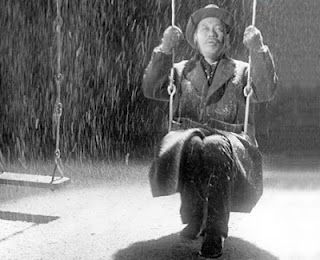A classroom conversation is what got me into browsing at notes that I wrote last semester after viewing an excerpt from Akira Kurosawa’s cinematic depiction of Dostoevsky’s The Idiot.
The conversation that I had with my classmate was about presenting a distinctive portrait of the Christian doctrine of salvation, which puts particular consideration to the existential facet of conversion and the goal of wholeness which sums up the kind of life that was presented and made possible by Jesus Christ. Here I find our exercise on the character of Kinji Kameda, the Idiot in Kurosawa’s movie quite interesting.
For starters it was done less than a decade after World War 2 which could be Kurosawa’s cinematic portrayal of the general distrust of Japanese society of people’s goodness which was salient in the film’s plot. The film portrays Kameda as an idiot that somehow embodies Kierkegaard’s idealistic anthropology of one who is transposed to a new understanding of himself.
I find it interesting that Kameda’s innocence and genuine sense of awe and naiveté is somewhat close to the biblical picture of Christ (and his otherworldliness) where interaction with his apparent ‘idiocy’ stirs a sense of catharsis that comes as a reaction when confronted by someone who is very much like us and yet so different.
Kameda’s remarkable divergence from other people is explained in the movie as the result of a near-death experience which for him led to a turning to his ostensible lunacy which was highlighted by his instantaneous dedication of himself to be kind and gentle to other creatures. Personally I find this as a parallel to the event and goal of metanoia to which we are called to full humanity or to “become as babes” to which God’s kingdom belongs to –in other words towards Christlikeness.
Here we find that trauma functions as a turning point that re-orients our life towards a new direction. Conversion in this sense is about being transposed to a new realm of existence.
Kameda’s experience of being rescued from the firing squad in the nick of time finds similarity with an individual’s experience of grace. Thus implying that we do not go through extreme experiences and come out of the ordeal unchanged, because ultimately we are products of our experiences and our decisions when faced with trying circumstances, and this perhaps points towards a better understanding of the transformative call of the Gospel upon which we encounter God in the embrace of one who has become ‘one of us’ in the incarnation of Jesus who shows us that God is as close to us as the next person is


No comments:
Post a Comment